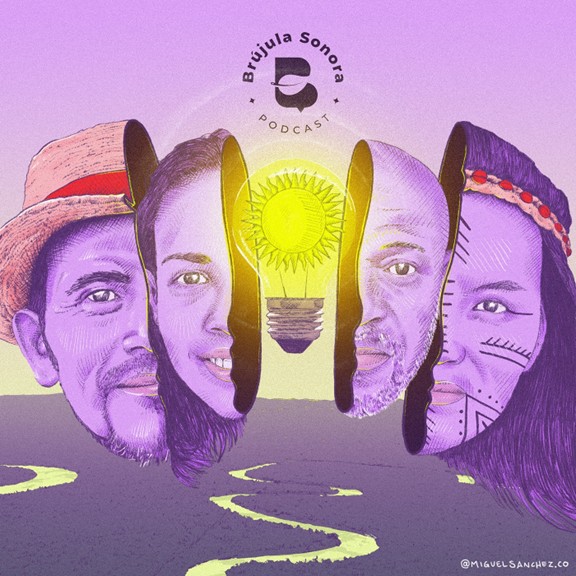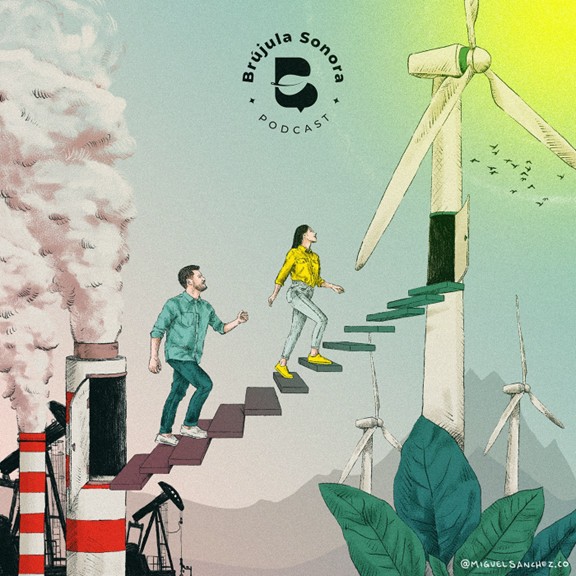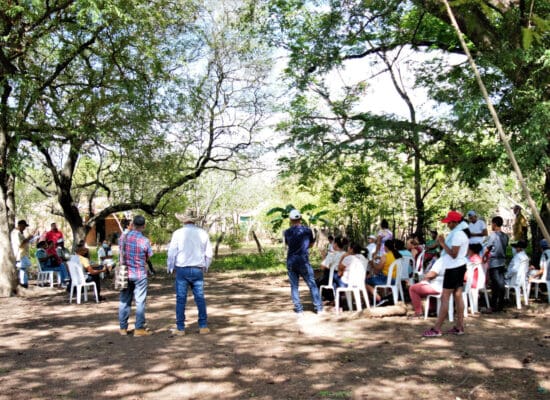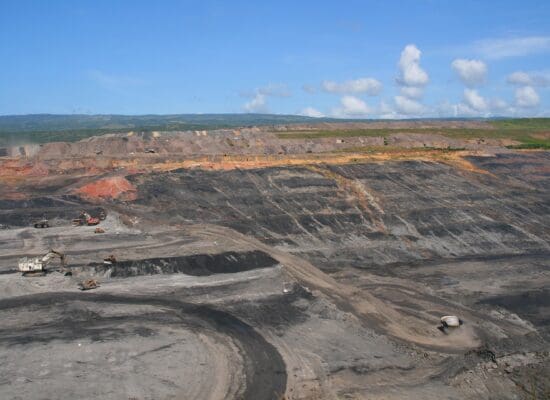Interview
Brújula Sonora Podcast: Communicating the Just Energy Transition in Latin America
Country:
Colombia,
Latin America,
Organisation:
Transforma,
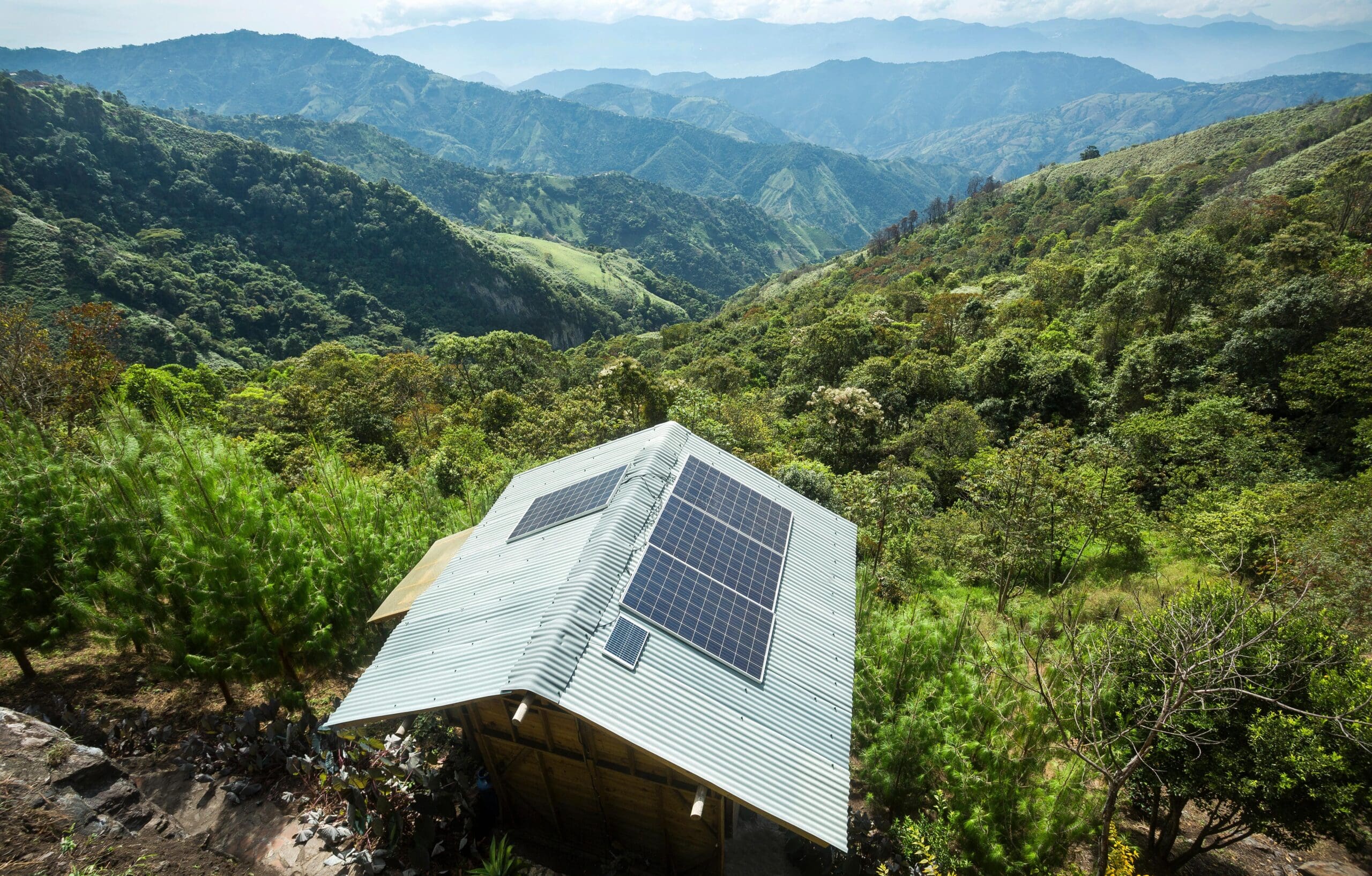
Brújula Sonora is a podcast created by Transforma, a Latin American think tank that promotes climate action with a justice-centred approach. Since 2020, it has offered a space to explore topics ranging from climate action to economic resilience in an accessible and engaging way. Now in its fifth season, Brújula Sonora focuses on one of the region’s most critical topics: the just energy transition. We spoke with podcast director and host, Mariana Rojas Laserna, production coordinator and scriptwriter, Natalia Gómez, and distribution and audience lead, Daniela Lozano, to find out more about their work.
What’s the story behind the Brújula Sonora podcast? And what inspired you to create a special season focused on just transition?
Mariana Rojas Laserna: During the pandemic in 2020, when Brújula Sonora was born, there was a need to understand what a “just recovery” meant—an expression that many governments had started using but wasn’t very visible in practice. We wanted to spark conversations among a Latin American, Spanish-speaking audience about how biodiversity and climate change topics fit into economic recovery, and to explore the links between environmental, social, and economic issues—at the core of Transforma’s mission.
We’ve covered many topics, from the importance of bees to climate finance, including stories from different countries. We turned to the energy transition because of its growing importance and Transforma’s work in local (for example, coal in Colombia) and global energy diplomacy. Our goal is to show how people and territories depend on the energy sector. This transition should not be abrupt but must be planned—balancing jobs, incomes, and national revenues. We want to make this message accessible to all so that anyone unfamiliar with the sector can understand it.
Natalia Gómez: This podcast is also part of Transforma’s broader strategy to communicate energy transition topics more effectively. We aim to highlight realities, myths, and truths about the energy transition through the lens of justice. In 2025, we decided to use an audio format for this conversation to reach more regional audiences, and set about designing Brújula Sonora and its digital strategy for Latin America. In recent years, most of Transforma’s audience has been in Colombia, but we now also have podcast listeners in Mexico, the United States, Argentina, Spain, Germany, Chile, Ecuador, Canada, and Peru.
How did you plan the programming and topics this season to ensure their relevance across the region?
Mariana Rojas Laserna: We know there are many complex issues around just energy transition. For example, topics like employment and building capacity are key concerns when discussing economic diversification. To explore these themes, we held a small workshop with energy and climate experts from partner organisations. Together, we identified and prioritised topics, and structured them logically into a season that introduced just energy transition.
We aimed for the six episodes to follow a clear narrative, but also to be coherent as standalone pieces. Although the topics are decided early on, each episode is still shaped further during production—refining the focus and adapting to what’s most relevant or sensitive in Latin America.
Which topics did you select for this season?
Natalia Gómez: The podcast aims to take listeners on a journey through the many layers of just energy transition in Latin America. It begins with an introduction to the concept of justice in this process, going beyond the environmental side to address the social and economic changes involved. With voices from Chile and Panama, the first episode explores how this shift can be made without deepening existing inequalities. The second episode moves on to the topic of economic diversification, with guests from Uruguay, Mexico, and Colombia reflecting on how countries that depend heavily on oil, gas, and coal can move towards renewable energy without leaving anyone behind.
In the third episode, the focus shifts to how the energy transition is communicated. Journalists, former policy-makers, and activists from Uruguay, Paraguay, and Chile help unpack the stories we hear in the media—who’s telling them, what’s missing, and how those narratives are shaping public opinion. The episode also explores how creative tools like art and community storytelling can open up space for more inclusive and honest conversations.
The fourth episode brings the human side of the transition to the forefront. With perspectives from Colombia, Mexico, Uruguay, and Guatemala, the discussion centres on jobs: what happens to fossil fuel workers, what kind of training is needed, and how to create better opportunities for women in an industry that’s mostly been male-dominated.
The fifth episode explores how communities in Colombia and Mexico are leading their own energy transitions. Through solar projects, women’s cooperatives, and local training schools, they’re creating solutions rooted in their territories, knowledge, and needs. These initiatives go beyond providing energy—they build autonomy, strengthen community ties, and promote social and environmental justice from the ground up.
The final episode, available on 12 June, will delve into the role of critical minerals for the energy transition, raising essential questions about how to avoid repeating old extractive patterns.
What lessons have you learned so far throughout this process? What has surprised you?
Mariana Rojas Laserna: One lesson is the importance of gender justice: there are many women-led initiatives actively shaping the transition that we didn’t know about. Also, although more dissemination is needed, many local authorities and communities already understand what the transition means for them.
Natalia Gómez: First, many people are thinking about and counting on the transition. Second, the topic can be broken down and made understandable through effective communication. Third, I realised that a just transition is the only path forwards, although not everyone feels the urgency of pursuing it.
Daniela Lozano Cuellar: The role of gender is key: many women are leading the change, despite male voices dominating in the media. And disinformation has done a lot of harm: there is fear, there are myths, and there are very different perspectives depending on the country.
How important are these outreach spaces, especially in a polarised geopolitical context?
Mariana Rojas Laserna: Politics has a huge influence. We try to base things on technical evidence, but even that can be biased. We’re seeing political narratives that downplay climate urgency, affecting investments in the transition.
We seek balance: technical voices, public policy perspectives, and also voices from the territories. That’s how we combat disinformation and avoid falling into rigid positions.
Natalia Gómez: This season’s purpose is clear: combating disinformation. We want to offer a space with evidence, voices from the ground, experts, and lived experiences, all explained clearly so that people can form their own opinions based on facts, not rumours.
Find out more here and listen to the podcast below.
Juan Pablo Cárdenas Álvarez is a communications consultant at the International Institute for Sustainable Development and a member of the JET-CR Knowledge Hub editorial team. He is based in Colombia.
Stay Informed and Engaged
Subscribe to the Just Energy Transition in Coal Regions Knowledge Hub Newsletter
Receive updates on just energy transition news, insights, knowledge, and events directly in your inbox.
